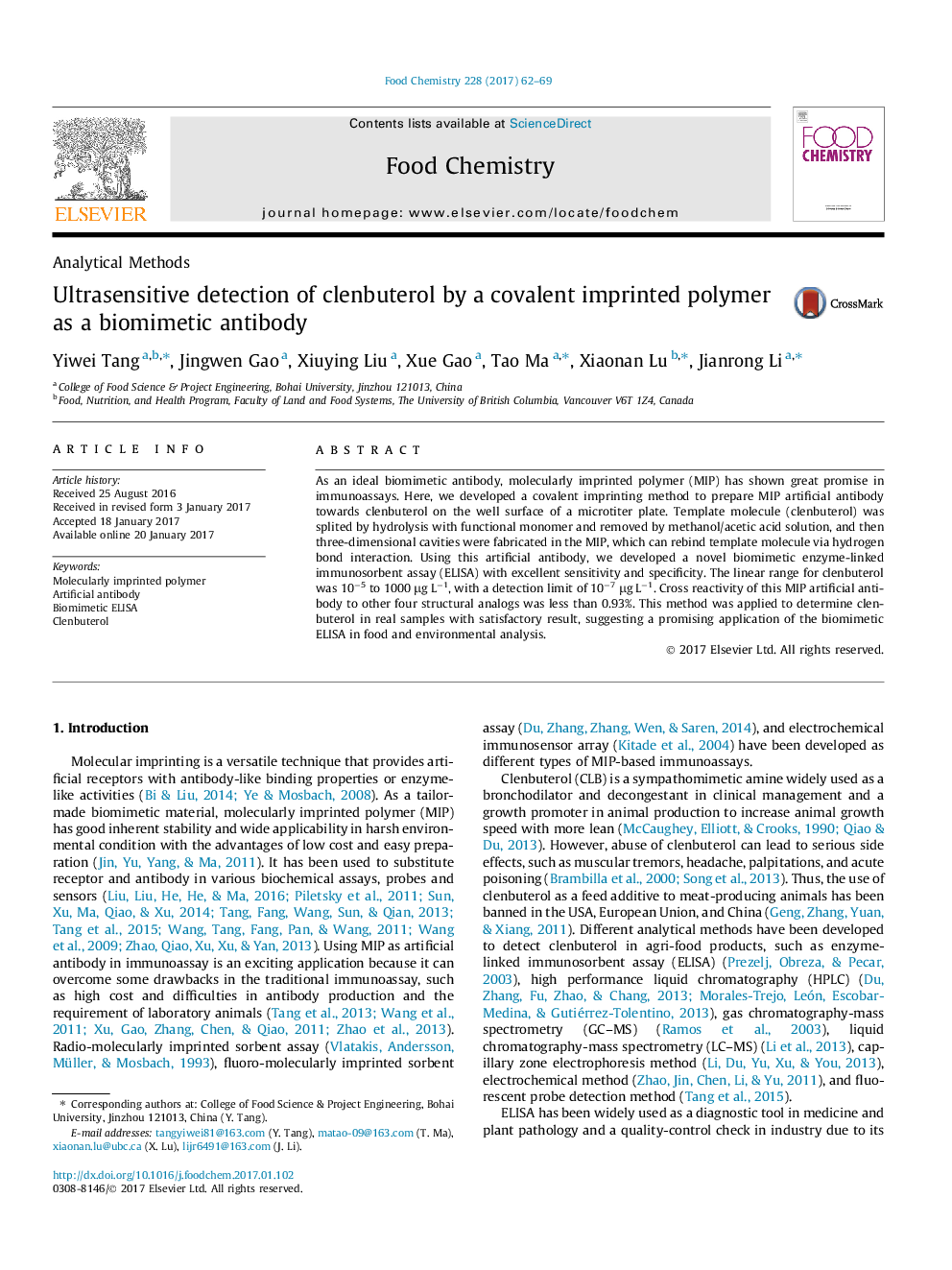| Article ID | Journal | Published Year | Pages | File Type |
|---|---|---|---|---|
| 5133886 | Food Chemistry | 2017 | 8 Pages |
â¢Covalent imprinting strategy improved the specificity of MIP artificial antibody.â¢MIP-based biomimetic ELISA for detection CLB was developed.â¢The linear range of the method was 10â5 to 1000 μg Lâ1 with a low detection limit.â¢The average recovery range for pork and water samples was 80.7-110%.
As an ideal biomimetic antibody, molecularly imprinted polymer (MIP) has shown great promise in immunoassays. Here, we developed a covalent imprinting method to prepare MIP artificial antibody towards clenbuterol on the well surface of a microtiter plate. Template molecule (clenbuterol) was splited by hydrolysis with functional monomer and removed by methanol/acetic acid solution, and then three-dimensional cavities were fabricated in the MIP, which can rebind template molecule via hydrogen bond interaction. Using this artificial antibody, we developed a novel biomimetic enzyme-linked immunosorbent assay (ELISA) with excellent sensitivity and specificity. The linear range for clenbuterol was 10â5 to 1000 μg Lâ1, with a detection limit of 10â7 μg Lâ1. Cross reactivity of this MIP artificial antibody to other four structural analogs was less than 0.93%. This method was applied to determine clenbuterol in real samples with satisfactory result, suggesting a promising application of the biomimetic ELISA in food and environmental analysis.
